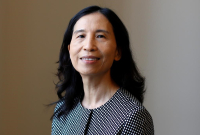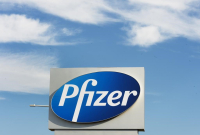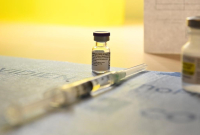Support strong Canadian climate journalism for 2025
The federal government should come up with a plan to roll COVID-19 vaccines out in Indigenous communities immediately, NDP health critic Don Davies says.
Speaking to a virtual news conference Monday, Davies said the federal government has deferred to the provinces to determine who will be vaccinated first but Indigenous health falls squarely in federal jurisdiction.
"This is a federal responsibility," he said.
He said Ottawa should detail a plan to ensure Pfizer-BioNTech's vaccine and others will be delivered to Indigenous communities that are experiencing health crises similar to or even worse than those in urban centres.
"Vaccination access should be based on one thing: vulnerability," he said. "When we see Indigenous communities who are vulnerable all across this country and experiencing outbreaks at the highest levels in this country, then we must respond."
He said none of the current 14 vaccine sites is targeted to COVID-19 hot spots in rural or remote areas and that shows a consistent flaw in the way the federal government fails to prioritize Indigenous health care.
"When we speak of things like systemic racism that is baked into our system, I think this is the kind of manifestation of that," he said. "It just is part of our normal response to not think of Indigenous health or to put it second and to accept that."
Davies says Ottawa should consider flying people from remote communities to major centres to get the Pfizer-BioNTech vaccine, and consider bringing the vaccine to central hubs in rural or remote areas.
The Pfizer-BioNTech vaccine is so far the only one approved for use in Canada against the virus that causes COVID-19. It requires storage in special ultracold freezers and is difficult to transport.
Davies said the government decision to make Indigenous communities wait for a less finicky vaccine from Moderna, which is in reviews but has not been approved by Health Canada yet, is not acceptable.
"That's sending a message that Indigenous communities are second-class citizens in this country, that they have to wait, that they're second in line," he said.
Churchill-Keewatinook Aski NDP MP Niki Ashton told the news conference that people in her northern Manitoba riding who have COVID-19 fly to major urban centres, including Winnipeg, to get medical care they need on a regular basis.
"Let's see that same kind of approach, if necessary, be used for people to be able to access the vaccine, including the Pfizer vaccine," she said.
Ashton said Indigenous leaders in her region want the federal government to take the lead on COVID-19 vaccination.
The Conservatives have also pressed for a federal plan to get vaccines to Indigenous communities, as part of a broader push for faster vaccinations.
Indigenous Services Canada said Friday that it's working closely with Indigenous and non-Indigenous partners to support an integrated and co-ordinated approach to support the delivery of a COVID-19 vaccine to Indigenous people.
The department said there were 2,604 active COVID-19 cases on First Nations reserves and a total of 6,756 confirmed positive cases throughout the pandemic, as of Dec. 17.
Ashton said there has to be collaboration with the provinces but the responsibility of vaccination in Indigenous communities falls under the federal jurisdiction.
"The distribution of the vaccine, access to the vaccine for communities in our region, for indigenous communities in our region, is a matter of life and death," she said. "There is a real sense of urgency we're not hearing that from the federal government."
This report by The Canadian Press was first published Dec. 21, 2020
This story was produced with the financial assistance of the Facebook and Canadian Press News Fellowship.





Comments